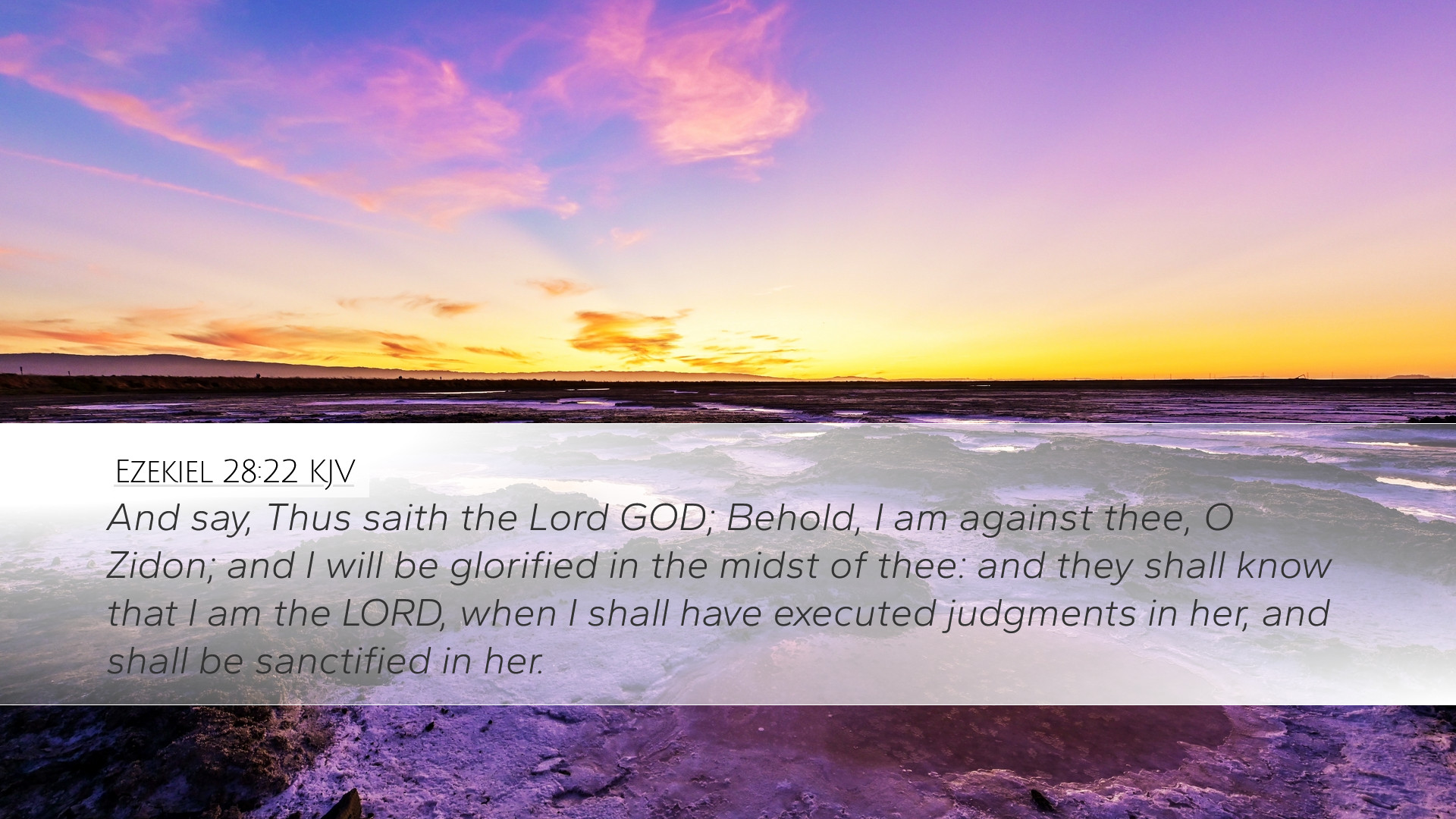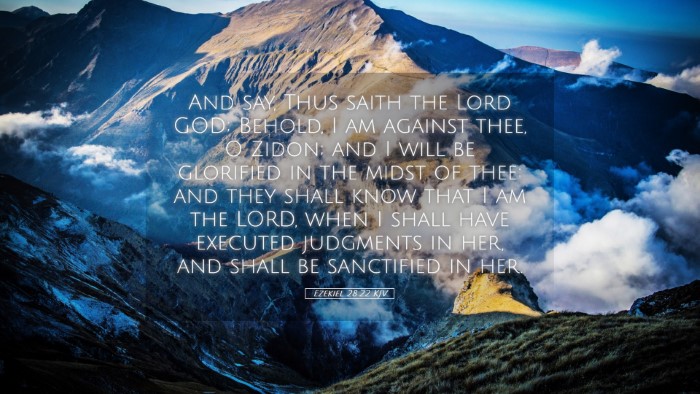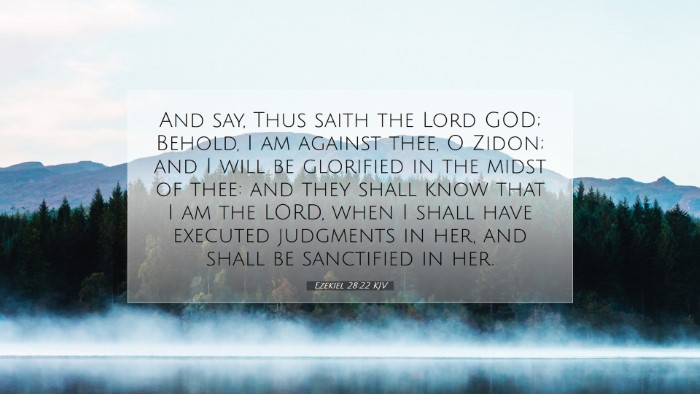Ezekiel 28:22 Commentary
Scripture: "Say to the land of Israel, Thus says the Lord God: Behold, I am against you, and I will bring you to judgment; and I will make you a desolate city, and the cities of Judah I will make desolate, so that there shall be no inhabitant."
Introduction
The verse, Ezekiel 28:22, captures God's pronouncement of judgment on the land of Israel, particularly addressing the cities of Judah. This passage emerges from a section in Ezekiel that emphasizes the sovereignty of God over nations and the consequences of sin. Commentaries from Matthew Henry, Albert Barnes, and Adam Clarke provide rich insights into the theological implications of this verse.
Thematic Overview
The Themes of Judgment and Desolation
-
Rebuke and Consequence: The verse underscores God's stance against the sins of His people. As Matthew Henry notes, this declaration is a reminder of the inevitable judgment that accompanies persistent unrighteousness.
-
The Loss of Inhabitants: God’s promise to make cities desolate points to the severe consequences of sin and rebellion. Albert Barnes highlights that desolation signifies both physical ruin and spiritual abandonment by God.
Historical Context
This passage must be understood against the backdrop of Israel's history. During the time of Ezekiel, the nation faced dire circumstances due to its rebellion against God. Clarke emphasizes the historical significance of judgement as a reflection of unfaithfulness and the turning away from covenant obligations.
Commentary Insights
Matthew Henry's Perspective
Henry asserts that God's message through Ezekiel serves as a warning not only to Judah but also to the surrounding nations. The judgment foretold was to highlight God’s ultimate authority and to purge the land of sin. He emphasizes the seriousness of God’s declarations, reinforcing that divine discipline is necessary to restore righteousness.
Albert Barnes' Insight
Barnes elaborates on the desolation that God threatens to bring upon the land. He interprets this as a spiritual as well as physical destruction. The impending judgment serves as an illustration of God's justice and the unavoidable consequences of sin. He further notes that such judgments are often a means of purification and restoration.
Adam Clarke's Analysis
Clarke provides an in-depth examination of the phrase "I am against you,” stressing that it signifies divine opposition. This opposition serves as the precursor to judgment that leads to desolation. He emphasizes that awareness of this divine opposition should lead believers to repentance rather than despair.
Theological Reflections
Understanding God’s Judgment
The notion of God's judgment can be perplexing for some, yet scholars argue that it is always met with an underlying purpose: restoration and reconciliation. This theme of judgment as a precursor to redemption is echoed throughout the Scriptures and serves as an essential understanding for pastors and theologians today.
Further, the desolation of cities can also mirror the condition of the spiritual lives of the individuals within those cities, prompting a self-examination among contemporary believers. As modern readers reflect on this verse, they are encouraged to ponder the state of their own hearts and communities.
Conclusion
In conclusion, Ezekiel 28:22 illustrates the gravity of God's judgment and serves as a powerful reminder of His sovereignty. Drawing from the insights of Henry, Barnes, and Clarke, we discern that God’s declarations are a call to awareness, repentance, and ultimately, restoration. Pastors, students, and scholars alike should approach this text with a readiness to engage in deep reflection, allowing its truths to shape their understanding of God's nature in both judgment and mercy.


